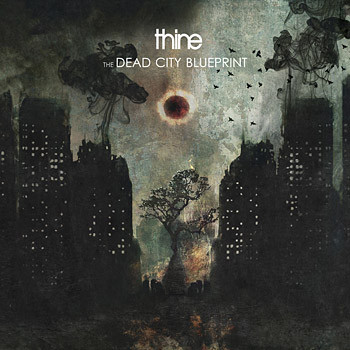
It's been about 12 years since the last album from Thine—the 2002 masterpiece In Therapy—so, at least for me, The Dead City Blueprint (once again from Peaceville) has been one of the most anticipated releases of the last decade. It's somewhat rare for me to ensure that I follow-up on bands' activity to determine whether or not a new album is on the way, but In Therapy has steadily grown to become one of the most played albums in my collection, so I've been periodically searching for bits and pieces of information about new material from Thine ever since—and was absolutely elated to finally learn that, yes, the elusive third full-length was indeed on the way.
The maturation from In Therapy to The Dead City Blueprint is certainly not as drastic as that of the shift between the band's debut, A Town Like This, and In Therapy; but it does mark a significant and intentional growth nonetheless. There are memories of the band's prior work within, but The Dead City Blueprint is uniquely "progressive" in spirit, taking a careful and subdued approach to its creative foundation. Its 10 tracks in slightly under an hour are darker, more somber and textured—building in surprisingly meticulous layers of increased melody, subtle keyboards, and acoustic guitars (amongst other flourishes). Vocals and distortion are both relatively understated, which does seem to contribute to a sense of fluidity throughout, where the variations in dynamics are very gradual and transition with seamless ease.
I believe the opener, "Brave Young Assassin," is the only track herein that started to take shape way back in 2003; so it makes sense that it's stylistically comparable to In Therapy, though provided a facelift of much more detailed, intricate layering. "Flame to the Oak" ebbs and flows between folksy acoustic guitars and mildly distorted power chords alongside an excellently circling lead melody—all the while with soft vocal harmonies—and even tosses in an organ solo. "To the Precipice" is the first immediate standout for me—unsurprising given that it's the most reminiscent of the In Therapy writing style—quickly building up a pulsing groove and introducing emphatic vocals that lean towards a straightforward and hook-based approach. Still, they've eased back on the distortion a bit, and overlap contrasting guitar tones to change up the atmosphere. I must say, though, that the vocal performance here is without a doubt my favorite of the album—invoking the same gut reaction that really hooked me in on the band's prior effort. "A Great Unknown" is comparable, the difference being that the vocals fall back a bit and it's the music that provides increased oomph and simplicity, relying heavily on driving power chords and droning lead melodies—an approach that carries over into the following track, "The Rift" (albeit at a slower pace). And "Scars From Limbo" is a brooding epic, one of the most spacious compositions—gloomy and more emotionally charged—with a quality of presentation that somehow boasts the potential to perform at the level of an atypical single from a respectable "mainstream" rock act.
The album was mixed and engineered by the band's drummer, Dan Mullins, who did an excellent job of balancing a wealth of layering and detail in the mix without losing valuable clarity. If I have any minor "concerns," I might question whether some of the textures are perhaps a little hesitant in some regards. The aforementioned fluidity, while a distinct positive, might benefit from some explosive contrast—an extra punch here and there, maybe a little more fire to the distortion on occasion, etc. That being said, this is all one hell of a massive undertaking, and sounds quite fucking nice in the end.
I specifically waited to review The Dead City Blueprint until I could order the physical CD and take in the lyrics and artwork. I just had a feeling that in this case, it was going to matter, and my assumptions were correct. I've frequently wondered why it's so often the case that those printed sleeves wrapped around jewel cases are completely wasted on simply repeating the exact same artwork that appears on the front cover of the CD booklet. Not so, in this case. The outer sleeve displays an amazing color piece that perfectly represents both the tone and texture of the album, while the cover of the booklet depicts a subtle, decaying face emerging from total darkness. The 20-page black and white booklet itself is made up of stark two-color negative images with light texture added for depth. All the more impressive considering that the artwork and graphic design were handled by Thine guitarists Paul Groundwell and Dylan Rhodes, respectively.
Lyrically, depressing themes of separation, loss, and longing are carried throughout. The delivery is artful and open for interpretation without being overly vague, and I personally find the approach to be beautifully poetic:
The words were worn as the days grew long
Clearly we lost our way, with the scars forever deepening
Carving apathy, to a closure I lament
Through winter blooms a golden hell
And then you dug your grave because you thought the grass was greener there
Without reasoning, and I know you won't relent
An added bonus are the snippets of morse code included on the outer bottom corners of all interior pages of the booklet, forming a message I can only assume sort of sums up the overall theme of the disc. I'm not going to reveal the complete passage here (so as not to ruin the surprise), but it's great to see that kind of attention to detail present, especially in this day and age.
Many, including myself, have loosely compared Thine to Katatonia and Anathema in the past, but that comparison would now be limited strictly to the manner in which all three bands have drastically shapeshifted over the course of time. In terms of literal sound and songwriting, it would no longer be fair nor accurate to compare Thine to other artists. Of course there are familiar characteristics in play, but the band has really succeeded in carving out a specific identity here.
I must confess that I do miss some of the immediacy and "catchiness" of In Therapy, but the more I listen to The Dead City Blueprint, the more I'm already starting to discover those elements still alive and well beneath the surface. Thine possesses an interesting knack for crafting songs that slowly reveal themselves with repeated exposure, and even more so this time around—like the coded messages in the CD booklet—the music requires the listener to put in a certain level of effort to dive deep and do some exploration.
It came as quite a shock to me that the stellar "Take the Risk" (one of the only demo recordings to surface during the 12-year gap between albums) is not present herein. But if The Dead City Blueprint proves anything, it's that Thine's artistic vision is one of great purpose, and the band should be trusted to do what is best for an individual album as a piece of art. The good news is that there are murmurs of a proper recording of "Take the Risk" being released as part of a digital EP in the not-too-distant future—a great indication that we hopefully won't have to wait another 12 years to hear more from this exceptional and painfully underrated UK outfit!
Get It
- Peaceville (CD)
- Amazon (CD)
- Amazon (mp3)
- iTunes (mp3)


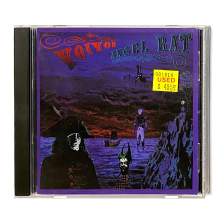
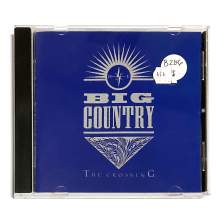

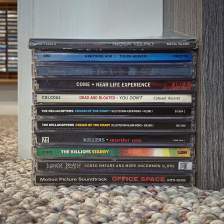


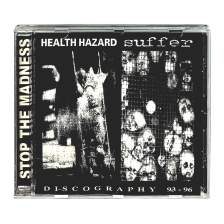
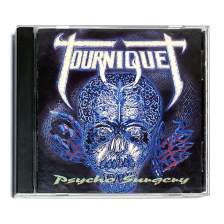

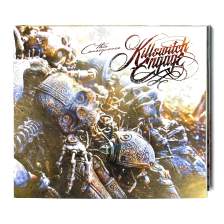
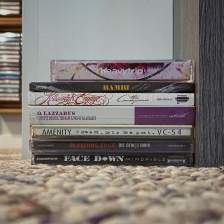
Comments
Superb lp- a slow burner offering something new on each listen, and yes ‘In Therapy’ is a classic in my opinion….nice review!
7.10.2014 | By Matt
Thanks for reading! Hopefully there’s going to be a Thine interview here in the next few weeks, too.
7.10.2014 | By Andrew Aversionline